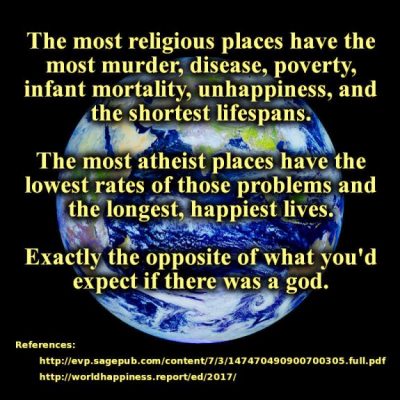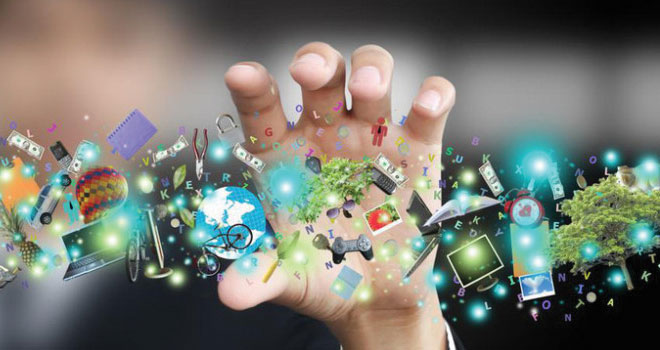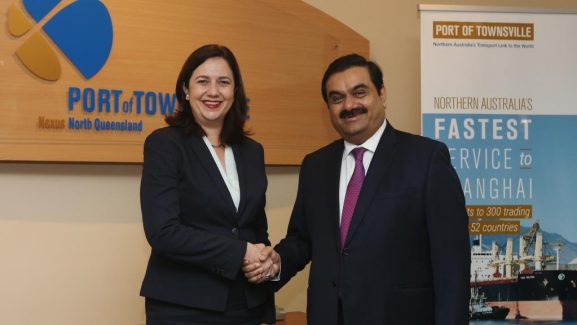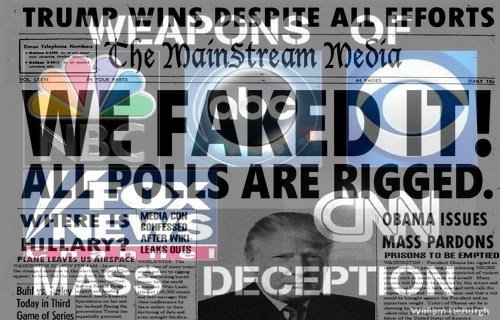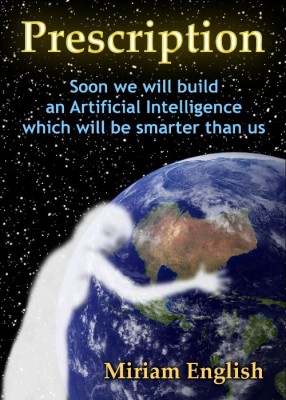Kaye Lee’s comment the day before yesterday got me thinking about the changes that have happened in the past 50 years and how unbelievable they are.
Back in 1967 we didn’t even have personal computers. Now we have supercomputers that fit in our pockets. The idea that we might be able to read books on electronic devices about the size of paperbacks was almost unthinkable (I say almost because I was telling people at the time that we would, so there must have been some other people who could see what was coming).
The internet didn’t exist. There were a few people working on ways to get huge computers to communicate, but those machines were not much more powerful than a cheap desktop calculator of today and those communications were fragile and clumsy. The first simple message sent from computer to computer in different locations was in 1969. TC/IP, the communications protocol the internet is based upon, was invented in 1983. Tim Berners-Lee invented the world wide web — what many people mistakenly think is the internet — in 1989, but it took another 4 years after that for the first proper web browser (Mosaic) to be publicly released.
The integrated circuit — an entire circuit etched on a single tiny silicon chip — had been developed in 1958, only 9 years earlier, but in 1967 a 16-bit (that’s 2 bytes) RAM memory chip was super-high tech and expensive. These days a computer is considered almost unusable if it has less than 1 billion bytes (a Gigabyte) of RAM, and I can buy tiny, fingernail-sized microSD cards containing 32 Gigabytes for $20 or less.
In 1967 Nicole Kidman, James Packer, Guy Pearce, and Tina Arena were born.
Australia Square Tower, Australia’s first true skyscraper, was completed.
Australian Aboriginals gained the right to vote.
50 years ago it was rude to ask a smoker not to light up in your presence; now it’s rude for a smoker to force their noxious smoke on you.
Back then religion used to be highly respected and considered virtuous, even by atheists. Now we know all religious institutions have been covering up child abuse for decades, probably centuries. And we’ve found that where religion is strongest so are murder, infant mortality, poverty, sexually transmitted disease, ignorance, teen pregnancy, and many more of the worst social ills.
Gay people finally have marriage equality in 26 countries (Australia is the 26th — we’re running a little bit late). In 1967 it was almost universally illegal to be in love with the wrong person.
Deep poverty, starvation, and disease have been reduced to a degree unimaginable 50 years ago. We might even see its eradication in the near future. Accompanying this improvement in the lives of the very poorest we are seeing continuing reductions in the birthrate. Birthrate peaked in the mid-1960s and put humanity, and the ecosystems that support us, in very great danger.
Through the worldwide spread of smartphones an extraordinary number of people now have access to the internet and much of the accumulated knowledge of mankind. This brings the possibility of eliminating deep ignorance in the future.
Before 1967 space exploration was pretty primitive. Mariner 2 made some magnetic and radiation measurements of Venus when it flew past the planet in 1962. A small number of rather indistinct photos of Mars were returned by Mariner 4’s flyby in 1965. USSR’s Luna 9 landed on the Moon in 1966 and sent back some photos. Lunar Orbiter 1 photographed much of the Moon in 1966.
Now, 50 years later, we’ve sent a spaceship outside our solar system, have completely mapped the Moon and Mars. We’ve visited Mars multiple times and had robots wandering around on its surface for years. We’ve made closeup photos of all the planets in the solar system, and of most of the moons. We’ve had a continuously occupied International Space Station orbiting Earth for nearly 2 decades. Last year 2 astronauts returned after nearly a year (340 days) in space. We’ve landed a spacecraft on Saturn’s mysterious moon Titan, and on multiple comets and asteroids. We’ve even returned samples from an asteroid and a comet. A robot is currently being built for a mission to a metal asteroid with the aim of investigating how to mine such motherlodes, while another is already on its way to a carbon-rich asteroid with the intent of bringing back samples to Earth.
We’ve put multiple telescopes in space, where views unhindered by atmosphere allow astounding new images of the universe. The most impressive is the Hubble Space Telescope, which will be overshadowed by the enormous James Webb Telescope destined for Earth’s L2 Lagrange point a little more than a year from now.
We have discovered thousands of planets around other stars — something thought impossible to detect not long ago — many of them in the “goldilocks” zone, where life might exist.
Elon Musk’s private space company, SpaceX, has developed spaceships that can land upright back on their launchpad ready for re-use, cutting the cost of space travel dramatically.
Our roads now have increasing numbers of electric cars that can drive themselves, and do so more safely than a human driver.
We can now edit genes directly using CRISPR, perhaps meaning the end of such genetic ailments as Huntington’s disease. We might also be able to use it to lengthen our lifespans indefinitely, and let our dogs live longer, healthier lives too.
Artificial intelligence can now play open-ended games better than the best human players.
We can have a device sitting in our pockets that can hold thousands of music tracks and play them on demand.
The fastest growing movie and TV show networks are online, play shows when you want instead of on schedules, and have given rise to the now common phenomenon of “binge-watching” series.
Anybody can publish their own books, music, or other knowledge-based creations on the internet at zero cost and make them available to an audience of billions.
Home printers have become unremarkable — everybody has them (except me — I avoid using paper).
3D printers have become affordable and are becoming common and the effect this will have on kids designing robotic systems should not be underestimated.
Cheap single-board computers (SBCs) such as the Arduino, Raspberry Pi, and many others are changing robotics and computing so that children can become involved and build intelligence into everything, now giving rise to the so-called internet of things (IOT).
Open source programming has led to a reversal in the standard way of building large projects — sometimes described as the cathedral vs the bazaar — where secretive, expensive projects by closed teams of highly paid experts turn out to be far less effective and secure than free, open projects in which thousands of interested participants contribute for free. The superior security of open source projects surprised everybody. Up until then, security was thought to be maximised by maintaining tight secrecy. Now we know the reverse is true.
Even though some people might have imagined the personal computer revolution, nobody could have imagined being able to own large, complex programs for free that could extend our capabilities in such profound ways. Some examples of quality open source software:
OpenOffice is a free, open-source office suite intended to replace Microsoft Office. OpenOffice has a wordprocessor, spreadsheet, and presentation tool (replacing Word, Excel, and PowerPoint), but OpenOffice also has a drawing program, a math formula editor, and a database. Sun created it and gave it away free as a deliberate ploy to hit back at Microsoft who were illegally sabotaging one of Sun’s main products. Sun was eventually sold to Oracle who didn’t want the OpenOffice Suite so, after letting it languish for a while, eventually gave it to Apache who now have been continuing it. (Apache is an open source organisation that creates the software that delivers most of the web.)
LibreOffice uses the same code as OpenOffice, but has some added features. When Sun was bought by Oracle a lot of the programmers who created OpenOffice left because Oracle has a very bad reputation with free, open-source programs. Those programmers created LibreOffice, which is why it looks and acts just like OpenOffice.
Geany is a free, open-source text editor. After I mentioned the OpenOffice and LibreOffice wordprocessors above you might think I use a wordprocessor to write my stories, but I don’t. I use a small, fast, text editor. The difference is that a text editor saves the file as just pure text, no styles — no bold, or italics, or different fonts or font sizes — just plain text. There are many advantages in plain text. Any text editor, text viewer, or wordprocessor ever built will read it — no need to worry about weird formats that other programs might be unable to read. The filesize is much smaller, letting you carry around enormous amounts of writing in a tiny USB pendant or bracelet. And you don’t need a big, fast computer just to run the damn writing program. The program starts up instantly because it is small. If I absolutely need styling in my text I use HTML tags for <b>bold</b>, for <i>italic</i>, and a few other tags. Later when I convert my stories to webpages it’s easy because webpages are written in HTML. I’ve written a small program that adds <p> tags at the beginning of paragraphs and some heading tags for chapter headings and the title of the story.
Kompozer is a small, simple, free, open-source HTML editor that works like a wordprocessor. I use it to make very quick webpages if I’m in a hurry. It’s not as efficient as making webpages by hand in a text editor, but it is fast and easy and works. The advantage of using an HTML editor is that the result can be viewed in any web browser and because HTML is actually plain text the document filesize is very small and it can be loaded into a text editor if you need to tweak it. (Most wordprocessors can also save documents as webpages too, but they are generally terrible at the job, producing awfully bloated documents that can up to ten times larger than the filesize needed.)
Calibre is a free and open-source ebook editor and converter. I drop my ebooks (written as very simple HTML) onto Calibre and convert them to epub format, which is the standard format for ebooks. Calibre also has an ebook reader built into it, but I only really use that for checking that ebooks have converted the way I intend. I don’t like to buy locked ebooks, but when I can’t avoid it I use Calibre (with DeDRM tools plugin installed in it) to remove the locks so that I can read the books I’ve bought on any device and in the reader program that I prefer.
fbreader is a free and open-source ebook reader. This is what I use on my tablet computer and my smartphone to read ebooks. It will read almost any open (not locked) format ebook. I don’t buy locked ebooks very often. I either buy ebooks that don’t have locks (for example Baen Books don’t lock their ebooks), or else I download free ebooks, often from Project Gutenberg (http://www.gutenberg.org/catalog/) where there are tens of thousands of free ebooks scanned and converted by volunteers.
GIMP is the GNU Image Manipulation Program. It has been free and open source since 1996. It is similar to, but in my opinion better than Photoshop. I’ve been using it for more than 20 years and it has so many capabilities that I’m still constantly finding new things it can do. I use it to create pictures and to alter existing ones. One of my main, everyday uses for it is to change the light and shade balance in photos. Another thing I often use it for is to shift the color balance in old, faded photos to make them look vibrant and new. I also use it to draw and paint using a graphics tablet attached to my computer.
Inkscape is a free, open-source vector image editor similar to Adobe Illustrator, but free. (The drawing program in the OpenOffice and LibreOffice suites is a vector graphics program too.) Unlike paint programs like GIMP, Photoshop, and others, a vector graphics program stores the image as instructions. A line will be stored as two endpoints and a line color and thickness; a circle will be a center position, a radius, a fill color, and a line thickness and color. Curves will be endpoints and control-points having a mathematical effect on the line. But you don’t need to understand any of that. The big difference is that, unlike ordinary paint programs, when you enlarge the image it doesn’t blur. So creating a small image then blowing it up to be a giant poster to fit on the wall of a building will still produce a sharp, clear image with smooth curves.
Audacity is a free, open-source sound editor. It can record and edit multitrack audio. It can mix and filter sounds and add special effects, such as echo, chorus-effect, flange, reverse, speed-change, pitch-change, and dozens of other effects. Unlike many sound editors Audacity is simple to use.
Blender is a free and open-source 3D model creator and editor and video editor. It lets you “sculpt” 3D objects and virtual worlds and animate 3D characters. It also has a video editor built in, so that animations can be edited into a movie. The video editing functions also are useful for matchmove work, where a 3D object in Blender is inserted into some existing video footage and the movements of the video camera and the virtual camera are matched. This is surprisingly easy to do and astonishingly convincing. Blender also has a built-in game engine that allows the creation of 3D games that have physics (for example, a dropped ball will fall, bounce, and roll without needing the programmer to explicitly animate it). Games created in Blender can be sold or given away without having to pay royalties to the Blender Foundation. In recent years Blender has become astonishingly sophisticated, outperforming programs that cost many thousands of dollars.
Mplayer is a free and open-source video player. It plays almost any kind of video because it comes with almost all the codecs required (codecs are small modules that tell a program how to encode and decode videos). Mplayer is fast and of minimal size so it takes up few resources on your computer. It can also rip videos from DVDs to your computer so you can watch movies without fiddling about with stupid DVD menus and risking scratching your precious DVDs. Its companion program, “mencoder” can re-encode videos (though for encoding I now prefer another free, open-source program, “ffmpeg” for that).
Linux is the greatest example of open source software. It is an operating system (similar to Microsoft Windows or Apple’s OSX), but unlike those two it is free. It has become the standard recommended operating system for a number of countries around the world. Many security organisations prefer Linux instead of the less secure proprietary operating systems. There are now hundreds of different kinds of Linux. Each designed for a particular use. The most commonly used kinds are Debian, Ubuntu, Fedora, Linux Mint, Arch Linux, Scientific Linux (mainly in research labs). The Linux I mostly use is Puppy Linux which specialises in being very small and fast.
In recent years, large numbers of voluntary, non-profit projects devoted to spreading information to the world have created a flood of knowledge freely available to billions of people:
Wikipedia – the largest encyclopedia ever created.
Project Gutenberg – a vast library of tens of thousands of free, out-of-copyright ebooks, scanned and digitised by volunteers.
I prefer to start at the catalog: http://www.gutenberg.org/catalog/
Project Gutenberg Australia has thousands more free ebooks, many specific to Australia, but as Australia’s copyright laws, though still insane, are not as bat-shit insane as USA’s, we have more recent ebooks not yet available in USA, for example Gone With the Wind.
The Internet Archive was a project started up by Brewster Kahle to archive a copy of every webpage on the internet. This is incredibly useful because it lets you access pages that are no longer on the net. The Internet Archive also keeps many thousands of ebooks, historic sound recordings, audiobooks, and even old movies and old radio programs. It is all free.
Librivox is an enormous collection of free audiobooks recorded by volunteers. They’re good to listen to when doing housework, driving, gardening, or just lounging around. They’re especially useful for blind and nearly-blind people.
There are various free textbook initiatives now that let anybody study for zero cost. They’re generally the result of teachers concerned at the dangerously spiralling cost of education because governments no longer invest in the next generation. These are texts are mostly scattered across the internet, but there are a few places that collect links to them. They change, so it’s best to search.
The same people who created Wikipedia have also created:
Wikibooks – free, open-content textbooks collection that anyone can edit.
Wikiversity – learning resources, learning projects, and research for use in all levels, types, and styles of education from pre-school to university, including professional training and informal learning.
Sci-hub is a free access point to vast numbers of science papers that would normally cost ridiculous amounts of money to access. It was created because the specialty science journal publishers now impede science so that scientists and universities can no longer afford to keep up with recent science. The publishers charge outrageous amounts for access, but they don’t pay authors so it has become a rort. Scientists have to publish because their careers depend upon it. Often the research was paid for by taxes so the public should own it, but are blocked by greedy publishers. Now sci-hub lets anybody access the latest information.
PLOS ONE is a free publisher of science papers.
arXiv free access to science papers, mostly physical and mathematical sciences.
bioRxiv free access to biological sciences papers.
Google Scholar lets you search a vast library of academic articles and books.
YouTube has enormous numbers of free videos on science, literature, maths, and many academic topics, as well as many tutorials on all the above programs and more. Some of my favorite YouTube channels:
happenfilms – alternative lifestyle (gardening, building)
scishow – short news program about recent science
scishow-space – scishow format, but concentrating on space
crashcourse – series of courses on various topics
The Brain Scoop – delightful Emily Graslie – biology at the Field Museum in Chicago
minutephysics – very short, physics
Kurzgesagt – topical, science-oriented
Numberphile – wonderful conversations with mathematicians
Deep Sky Videos – chats with astronomers
Khan Academy – educational courses (mostly maths)
Green Power Science – a bit sensationalist, but full of useful information
TheraminTrees – philosophy and psychology
Trae Crowder – liberal redneck – humorous/sensible approach to recent events
Last Week Tonight with John Oliver – a scathingly funny look at current events.
Every Frame a Painting – analyses movies to understand why they do or don’t work
VscorpianC – makes step-by-step, easy-to-follow tutorials on many of the open source programs mentioned above.
There are countless freely downloadable talks online on every topic imaginable. I have oodles of favorites:
Radiolab – lighthearted and humanist approach to science
Sam Harris’ Waking Up podcast – he very thoughtfully interviews many very interesting people
TED talks – these are wonderful
EscapePod – science fiction stories
The Skeptics Society
LittleAtoms.com – interviews with scientists and related people
AstronomyCast – astronomy and related topics
So much has changed. Over 50 years the world has become a very different place. How much would you have thought impossible? Sure, you probably thought we’d have flying cars … and we sort of do, but they were always actually a pretty silly idea. Did you imagine Wikipedia? The internet? Mobile phones? The fact that mobile phones would be supercomputers? Virtual reality?
Things feel superficially the same, but they are really very different.
